Frequently Asked Questions
Everything you need to know about our organizing campaign
A union is when workers join together to negotiate for better wages, benefits, and working conditions. Instead of dealing with management individually, we speak with one united voice.
We are the union. It's not a third party—it's us, working together, with the support and resources of AFSCME.
No. California's Meyers-Milias-Brown Act protects public employees' right to organize. It's illegal for management to fire, discipline, or retaliate against you for union activity.
If you experience retaliation, the union can file unfair labor practice charges and fight to get your job back with back pay. Your rights are protected by law.
Union dues support contract negotiations, legal representation, and organizing resources. The money goes toward:
- Professional negotiators who fight for your contract
- Lawyers who defend your rights
- Training and education for union members
- Strike funds and hardship assistance
- Political action to protect workers' rights
AFSCME dues are typically 1.5% of your salary. Members vote democratically on how dues are spent and on union priorities. As members, we'll have a voice in our local's budget and decisions.
The Process:
- Sign union cards: A majority of temporary lifeguards sign authorization cards
- Request recognition: We formally ask the City to recognize our union
- Elect bargaining team: We vote to choose coworkers to negotiate on our behalf
- Negotiate contract: Our team bargains with management for wages, benefits, and working conditions
- Vote to ratify: All members vote yes or no on the proposed contract
- Contract in effect: Once ratified, the contract is legally binding
Unions create a formal process for addressing concerns and negotiating improvements. Many public employers work constructively with unions—it's standard practice in the public sector.
Having a contract actually makes expectations clearer for everyone. Management knows what they can and can't do, and workers have clear rights and protections. It professionalizes the relationship.
AFSCME represents public sector workers across California, including many municipal employees. They have:
- Experience negotiating with local governments
- Resources to support organizing campaigns
- Legal expertise in public sector labor law
- A track record of winning strong contracts
- Democratic governance—members control the union
AB 1484 is a California law passed in October 2023 that strengthens rights for temporary public employees. This law is a key reason why we have strong legal standing to organize.
AB 1484 requires public employers to provide temporary employees with:
- Job descriptions
- Wage rates and salary ranges
- Information about eligibility for benefits
- Anticipated length of employment
- Procedures to apply for permanent positions
Most importantly for our organizing effort: AB 1484 strengthens temporary employees' right to be included in union bargaining units with permanent employees who do similar work. This gives us legal backing to organize and demand equal treatment.
Learn more about your rights under AB 1484 on our Know Your Rights page.
The 1000-hour annual cap appears designed to keep us temporary and block access to part-time non-temp positions that could offer benefits at 50% FTE. With a union, we can:
- Negotiate pathways to permanent part-time positions
- Fight for benefits even as temps
- Demand transparency about why the cap exists
- Challenge arbitrary limits on our ability to earn a living
Yes. California law requires overtime pay for employees working more than 8 hours in a day. When staff reported concerns to the California Labor Board, they confirmed this is correct.
A union contract ensures proper overtime payment and gives us a grievance process if we're not paid correctly.
Right now, we're reminded constantly that we can be "separated for any legal reason at any time." This creates a culture of fear where people are afraid to call in sick, question policies, or speak up about problems.
With a union contract, we can negotiate:
- Just cause standards: Discipline only for documented performance issues
- Progressive discipline: Warnings before termination
- Grievance procedures: Fight back if fired unfairly
- Clear, written rules: Everyone knows what's expected
- Due process: Right to representation in disciplinary meetings
Currently, if you're injured off-the-job for 1-4 weeks (not workers' comp), you can't work due to physical requirements, can't file for disability benefits, and have no income. You're completely unprotected.
Through collective bargaining, we can negotiate for disability insurance coverage or other protections so workers aren't financially devastated by non-work injuries.
Once a majority of temporary lifeguards sign cards, we formally request recognition from the City of West Hollywood. They can either:
- Voluntarily recognize us: Accept our petition and begin bargaining
- Request an election: Hold a secret ballot vote supervised by the state
Either way, once we're recognized, we elect a bargaining team and begin negotiating our first contract.
It varies, but here's a typical timeline:
- Card collection: A few weeks to a few months
- Recognition/election: 1-3 months
- Contract negotiation: 3-12 months (depends on bargaining)
Your union card is confidential. Management cannot see who signed cards. The union keeps cards private and only uses them to demonstrate majority support.
Once we go public with our campaign or file for recognition, it becomes harder to stay anonymous if you're actively involved. But many members stay behind the scenes and contribute in private ways.
That's great! Asking questions is an important part of making an informed decision. Reach out confidentially:
Email: info@wehotempsunited.org
Phone/Text: 415-949-0048
All communications are confidential and protected by law.
